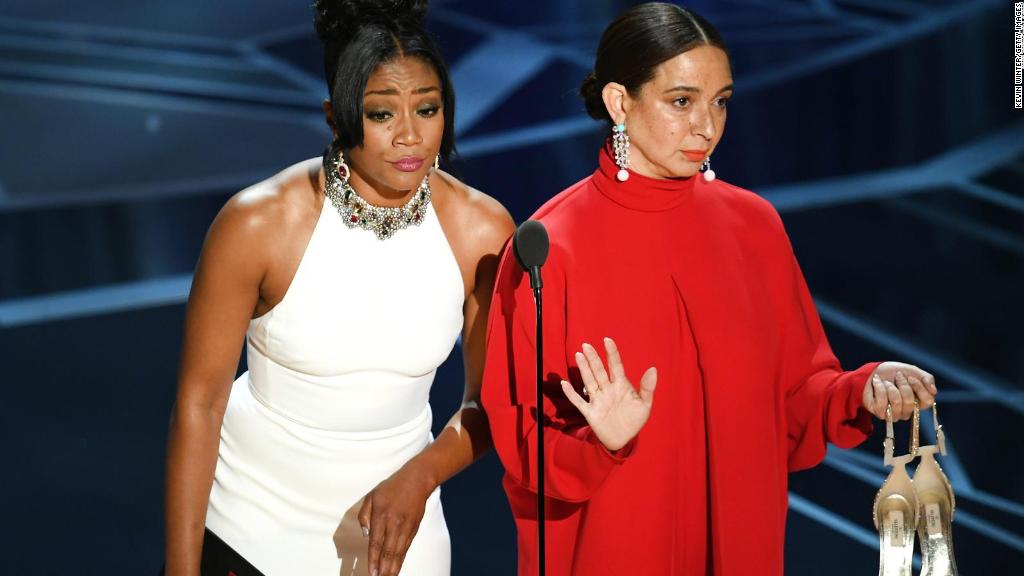
Thirty nine people won Academy Awards on Sunday night. Only six of the winners were women.
For all the talk on stage about empowering women and achieving gender equality, the four-hour telecast also illustrated persistent inequality in Hollywood.
Several of the night's most-buzzed-about moments were about women saying, in one way or another, "time's up."
The front page of Monday's New York Post dubbed the Oscars "LADIES' NIGHT."
But most of the acceptance speeches were delivered by men.
The official list of winners on Oscars.org lists 33 male winners and 6 female winners in 24 categories. (This is because some of the categories credited multiple people.)
This imbalance has existed for years. It starts with the people who are hired to make movies, and continues with the annual nominations process.
According to the Women's Media Center, men represented "77 percent of all nominees" this year, down from 80 percent one year earlier.
"At a time when women are demanding more power and visibility, these low numbers should be a wake-up call for Hollywood executives," Women's Media Center president Julie Burton said last month.
Critics of the Academy say the organization's memberships rolls do not properly reflect the entertainment industry or society at large.
In recent years some of these critiques coalesced around the hashtag #OscarsSoWhite.
While there have been some signs of progress, Sunday's results affirm what Annabella Sciorra said on the Oscars stage: "The journey ahead is long, but slowly a new path has emerged."
Sciorra and two other women who accused Harvey Weinstein of misconduct gave a moving speech about Hollywood's "Time's Up" initiative on Sunday.
Ashley Judd, standing next to her, said "a mighty chorus" is speaking up.
Later in the evening, best actress winner Frances McDormand asked all the women nominees in the room to stand. Jodi Kantor of The New York Times, who led the newspaper's reporting about the Weinstein scandal, tweeted: "The most striking thing, here in the room, about watching the female nominees stand? There were so few of them."
The six female winners were Frances McDormand, Allison Janney, Lucy Sibbick, Kristen Anderson-Lopez, Rachel Shenton, and Darla K. Anderson.
It's worth noting that all six winners are white, just like most of the male winners.
The Oscars are "more woke" -- but the winners are "still so white," film critic Gene Seymour wrote for CNN.com Sunday night.
The importance of diversity and inclusion came up time and time again during the ceremony -- from the very beginning, when Jimmy Kimmel said "we need to set an example," to the end, when Guillermo del Toro talked about using art to erase "the lines in the sand" between people.
There were important milestones: Jordan Peele is the first black screenwriter to win best original screenplay. Daniela Vega was the first openly transgender to take the Oscars stage as a presenter. Viewers heard English and Spanish on stage and even saw a little sign language: Shenton, accepting the Oscar for best short for "The Silent Film," signed part of her speech.
Multiple speakers celebrated immigrants and disenfranchised individuals. "Marginalized people deserve to feel like they belong. Representation matters," "Coco" co-director Adrian Molina said on stage.
But the winners list exposed a gap between the on-stage rhetoric and reality.


